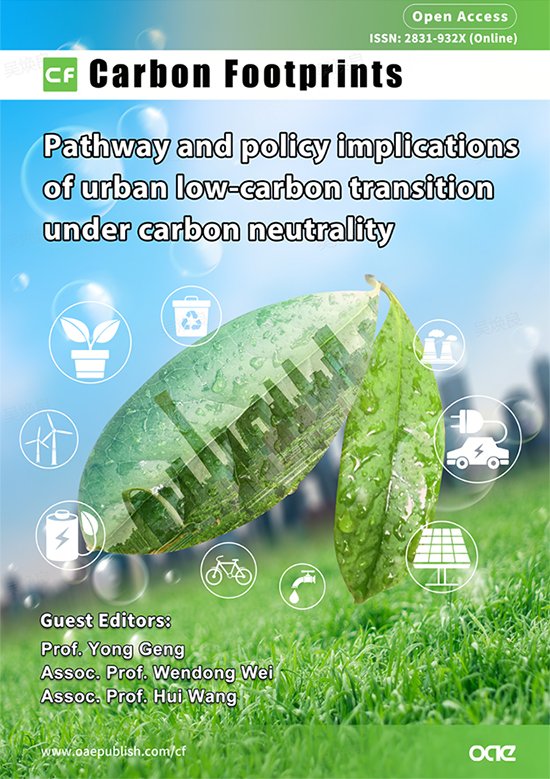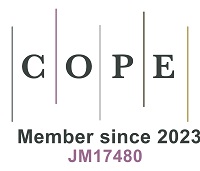
Topic: Pathway and Policy Implications of Urban Low-Carbon Transition under Carbon Neutrality
Guest Editor(s)
Prof. Yong Geng
School of Environmental Science and Engineering, Shanghai Jiao Tong University, Shanghai, China.
Prof. Wendong Wei
School of Environmental Science and Engineering, Shanghai Jiao Tong University, Shanghai, China.
Special Issue Introduction
Reducing CO2 emissions has become a major concern in global climate governance. According to the carbon emissions report released by the International Energy Agency (IEA) on March 2, 2023, global energy-related carbon emissions increased by 0.9% in 2022 year on year, totaling 36.8 billion tons, much higher than the emissions required to achieve the temperature control targets set by the Paris Agreement. The situation regarding CO2 emission reduction is not optimistic, with cities being responsible for up to 75% of total emissions. It is urgent to promote low-carbon transformations in cities.
Urban low-carbon transition refers to a development mode in which a city takes a low-carbon economy as its development direction, the citizens embrace low-carbon lifestyles, and the government implements low-carbon society as a blueprint for city service management. Generally speaking, this includes four fields: developing clean energy, such as hydrogen, wind, water, and biological energy; adjusting industrial structure; optimizing spatial layouts; and enhancing comprehensive environmental governance. The government should prioritize the development and research of green energy sources, promote low-energy tertiary industries, improve urban emission reduction standards, and implement effective urban environmental management. Optimizing the urban low-carbon transition path and policy design while efficiently and orderly advancing the urban low-carbon transition is the key to achieving sustainability.
Proposed topics include, but are not limited to:
Research on driving mechanism of low-carbon transition of the urban energy system
Cost-benefit analysis of the collaborative treatment of urban CO2 and pollutants
Policy comparison and optimization of the urban low-carbon transition
Measurement and optimization strategy of urban carbon emission inequality
The impact of urban spatial structure and geometric form on low-carbon transition
Spatial differences in embedded carbon emissions and formation mechanisms of urban residents
"Digital carbon neutral" development models and pathways for cities
Research on the low carbon development path of Smart City construction
Urban implied carbon emission space and industrial transfer paths
The role of breakthrough green technologies in urban low-carbon transition
Study on the characteristics and spillover effects of spatially linked networks of urban carbon emissions
Urban low-carbon transition refers to a development mode in which a city takes a low-carbon economy as its development direction, the citizens embrace low-carbon lifestyles, and the government implements low-carbon society as a blueprint for city service management. Generally speaking, this includes four fields: developing clean energy, such as hydrogen, wind, water, and biological energy; adjusting industrial structure; optimizing spatial layouts; and enhancing comprehensive environmental governance. The government should prioritize the development and research of green energy sources, promote low-energy tertiary industries, improve urban emission reduction standards, and implement effective urban environmental management. Optimizing the urban low-carbon transition path and policy design while efficiently and orderly advancing the urban low-carbon transition is the key to achieving sustainability.
Proposed topics include, but are not limited to:
Research on driving mechanism of low-carbon transition of the urban energy system
Cost-benefit analysis of the collaborative treatment of urban CO2 and pollutants
Policy comparison and optimization of the urban low-carbon transition
Measurement and optimization strategy of urban carbon emission inequality
The impact of urban spatial structure and geometric form on low-carbon transition
Spatial differences in embedded carbon emissions and formation mechanisms of urban residents
"Digital carbon neutral" development models and pathways for cities
Research on the low carbon development path of Smart City construction
Urban implied carbon emission space and industrial transfer paths
The role of breakthrough green technologies in urban low-carbon transition
Study on the characteristics and spillover effects of spatially linked networks of urban carbon emissions
Submission Deadline
31 May 2025
Submission Information
For Author Instructions, please refer to https://www.oaepublish.com/cf/author_instructions
For Online Submission, please login at https://www.oaecenter.com/login?JournalId=cf&IssueId=cf2505311551
Submission Deadline: 31 May 2025
Contacts: Haidi Ding, Journal Manager, Haidi_Ding@oaepublish.com
Leah Deng, Assistant Editor, Leah@carbonfootprintsjournal.net








